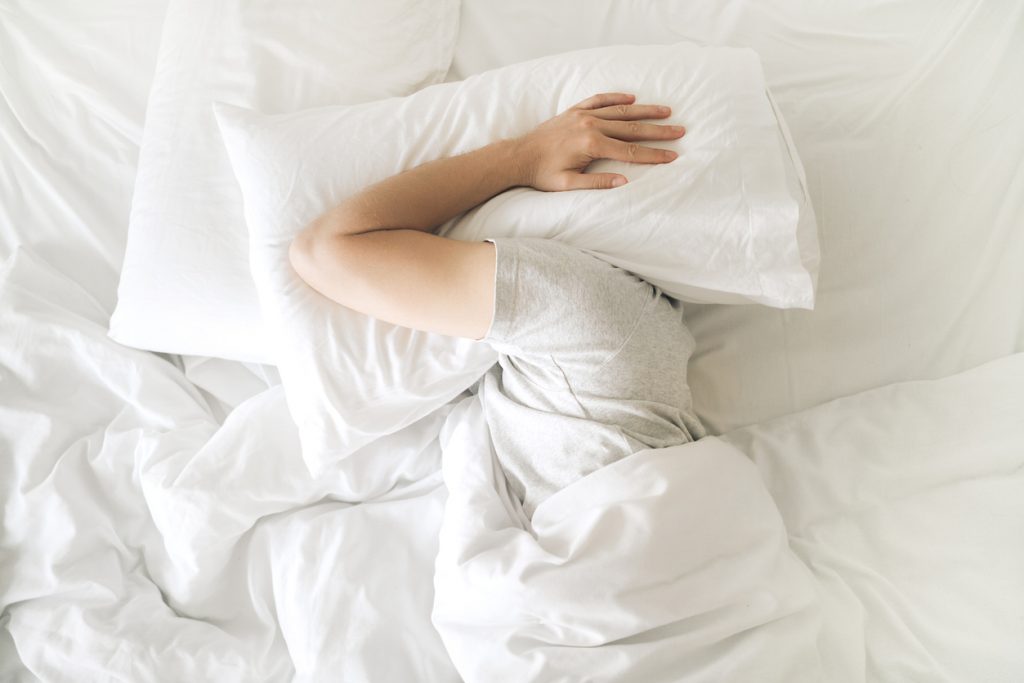Stress is the body’s reaction to any change that requires an adjustment or response to maintain normal function. The body may react to changes with physical, emotional, or mental responses. Anxiety can be described as feelings of worry, nervousness, or unease about something with an uncertain outcome.
Anxiety is the most common mental health condition in Australia, and 20% of men will experience anxiety at some stage in their life.
Feeling stressed is usually connected to your circumstances and is usually temporary (like an upcoming project deadline, exams, a new baby on the way, relationship struggles, or retirement).
What are the symptoms of chronic stress?
Stress can affect everyone differently and not everyone will experience the same symptoms. However, signs of chronic stress include sexual problems, muscle tension, sleep disturbances, digestive issues, chest pain and rapid heartbeat, changes in appetite and weight, weakened immune system, mood changes, difficulty concentrating and making decisions, memory problems, inability to relax, increased use of alcohol or drugs, social withdrawal, loss of motivation and interest in activities. If you’re experiencing several of these symptoms for an extended period you should chat to your doctor about it.
Anxiety, on the other hand, is more than feeling stressed, nervous, or worried. Anxiety is continuing to feel stressed or worried after the source of this stress and/or worry has passed (like ongoing health anxiety, financial anxiety, and social anxiety).
So, how does stress and anxiety affect sex drive?
Stress and anxiety may cause your sex drive to spike, or it may cause your sex drive to dip.
On the other hand, stress and anxiety may cause a dip in your sex drive, and there are two reasons for this.
From a biological (physical) perspective, your sex drive may dip because:
When we get a sudden fright our ‘fight or flight’ response kicks in so that we can cope with the immediate threat. This response is due to the activation of our sympathetic nervous system and is an unconscious way that our brain helps to protect us.
The response includes a quicker heart rate and deeper breathing, which can help us to meet the threat head-on or outrun the danger. It also includes inhibition of bodily functions that aren’t needed to fight or flee, like digestion or having an erection. Once the threat has gone, and you’ve beaten it or out-run it, things go back to normal.
If threats continue, or a whole lot of problems keep coming up, our hypothalamic-pituitary-adrenal axis (HPA axis) gets activated to try and help us cope with the ongoing stress. Activation of the HPA axis results in an increase in cortisol (our main stress hormone), which raises our blood sugar levels and blood pressure, and inhibits our immune system.
High cortisol levels are linked with anxiety. Cortisol also inhibits testosterone, the primary male sex hormone, which is responsible for sex drive (libido) and might contribute to the blood flow changes that cause an erection.

How do stress and anxiety affect erectile dysfunction?
You might be wondering how something that you experience in your mind may affect your erectile dysfunction.
Stress and anxiety are a natural part of life, and most of us will experience one or both throughout our lifetimes.
Can a lack of sleep cause erectile dysfunction?
Stress can cause sleep problems and poor sleep can cause erectile dysfunction. Sleep deprivation affects testosterone levels, dopamine receptors, heart health and circulation, which all impact erectile function. Erectile dysfunction is twice as likely in men who have sleep apnoea.
What is performance anxiety?
Sexual performance anxiety is a term used to describe feelings of worry or fear related to sexual activity, but it’s not recognised as a diagnosis. Anxiety about sexual performance can become a hard-to-break cycle in which your worries contribute to sexual difficulties like erectile dysfunction or premature ejaculation, which then causes you to worry more about future performance.
How to tell if it’s performance anxiety or ED?
Performance anxiety is mainly psychological in nature, whereas erectile dysfunction can have physical or psychological causes. If your erection issues are situational and linked to stress or worry about sexual performance you might have performance anxiety. If you have consistent difficulty achieving or maintaining erections, regardless of the situation is might be erectile dysfunction. It’s important to note that performance anxiety can lead to ED symptoms, and the two conditions can coexist.
What should you do if you are having issues?
Whether you are in a relationship or you are single, changes in sex drive and your ability to achieve an erection can both be confronting issues.
If you are in a relationship, try to speak with your partner about how you are feeling. Encouraging understanding between you and your partner will be helpful for working through the sexual issues you are having.
If you are single, consider talking to a person you trust, like your doctor or a friend, about changes in your sex drive or your erectile function. Talking through your source of stress and anxiety may help you to better understand the next best steps you can take.
Remember that it is completely normal to not feel like having sex all of the time.
If your sex drive remains low and you are having issues with erectile function for a couple of weeks, you should visit your doctor. Your doctor can carry out a physical examination to help understand the causes of your erectile dysfunction and set up a treatment plan for the next steps.
You can also find more information and resources regarding erectile dysfunction on our Erectile Dysfunction information page.















